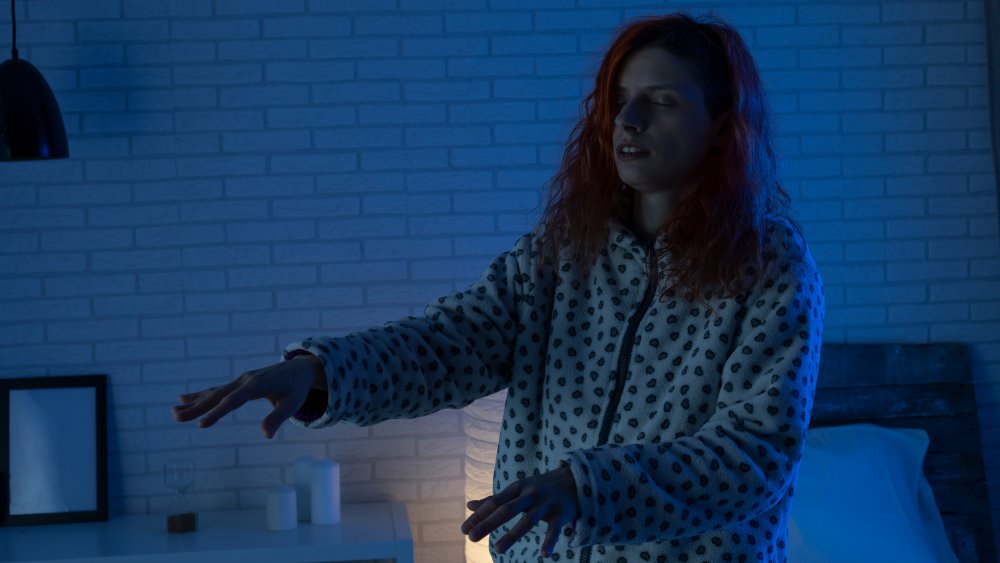The Real Reason People Eat In Their Sleep
Eating healthy is difficult as it is, but most of us are lucky enough to know that once we're asleep at night, it's highly unlikely that any further foodstuffs are going to make their way past our lips. For those suffering with nocturnal eating disorders, or NEDs, however, being unconscious doesn't necessarily mean they're done eating for the day (or night). Worse still, unlike those who are simply fond of a midnight nibble, people dealing with such disorders often have little to no control over what they're putting in their mouths in the dead of night.
As Everyday Health explains, those suffering with nocturnal eating syndrome (NES) will awaken with an uncontrollable urge to eat, regardless of how hungry they actually are. They won't be able to get back to sleep until they've done so, either. However, those dealing with a sleep-related eating disorder (SRED) arguably have it even worse, as they're usually unaware of their actions, are only partially awake while eating, and most likely won't even remember what's happened the following morning.
Eating while you're asleep is symptomatic of an underlying issue
Everyday Health notes that SRED is similar to other sleeping disorders, such as sleepwalking, because it entails unconsciously participating in an action, in this case eating, without the sufferer being aware of it. The disorder occurs more commonly in women, can affect children and adults alike, and is often the result of an underlying issue such as depression, a stomach ulcer, sleep apnea, or even a traditional eating disorder like bulimia.
The signs are fairly obvious, including finding evidence of nocturnal eating the following morning and being clueless about how the kitchen got so messy, waking up without any appetite, and experiencing weight gain without any obvious cause behind it. "If you suspect you have a nighttime eating disorder, speak with your doctor," advised David Schulman, M.D., firmly. Thankfully, nocturnal eating disorders can be treated, so the sooner you get help, the better.
Sleep-related eating disorders can be treated
As Web MD notes, sleep-related disorders are typically treated using medication, though sleeping pills should be avoided as they increase confusion and clumsiness. An overnight stay in a sleep lab may be required, during which brain activity is monitored. Likewise, additional treatments to manage underlying stress and anxiety are often employed, including counseling and limiting the sufferer's intake of alcohol and caffeine.
SREDs are potentially dangerous because you could get injured while semi-consciously preparing food, or you could even ingest something inedible or poisonous. You're also running the risk of developing obesity or diabetes, as Mayo Clinic warns. Your quality of sleep is also going to be impacted, and feelings of guilt or helplessness may persist, which is particularly dangerous for those already suffering with depression. Per Dr. Oz, SREDs remain something of a medical mystery and their exact cause is unknown. However, they can be managed. If you're concerned, contact your doctor immediately to discuss options.


